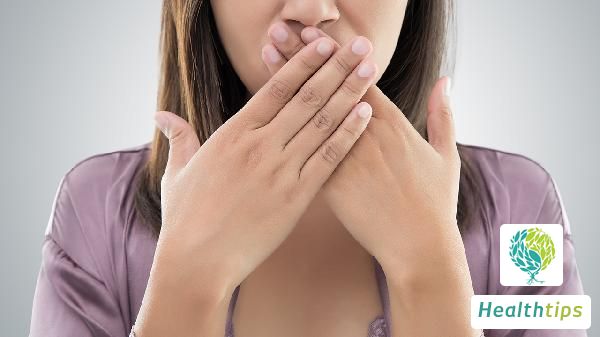"Can Constipation and Chronic Gastritis Cause Bad Breath?"
Constipation and chronic gastritis can lead to halitosis, which may be related to indigestion, Helicobacter pylori infection, gastric ulcer, and other factors. It is recommended that patients seek medical attention promptly and undergo treatment under the guidance of a physician.

1. Indigestion
If patients have long-term improper diet or overeating, it may cause indigestion, resulting in food accumulation in the intestines that cannot be excreted in a timely manner, leading to constipation. Additionally, prolonged food fermentation in the intestines produces a large amount of gas, causing halitosis. Medications such as Jianwei Xiaoshi Pian (digestive pills) and Rusuanchu Pian (lactic acid bacteria tablets) can be prescribed by a doctor for treatment.
2. Helicobacter Pylori Infection
If patients do not pay attention to food hygiene or share utensils with infected individuals, they may contract Helicobacter pylori infection. When bacteria invade the stomach, they can damage the gastric mucosa, causing gastrointestinal dysfunction and inadequate food digestion and absorption, resulting in constipation. Accompanying symptoms may include abdominal pain and acid reflux. Treatment can include medications like Omeprazole Enteric-coated Capsules and Amoxicillin Capsules prescribed by a doctor.
3. Gastric Ulcer
If a patient has a gastric ulcer, eating may irritate the ulcerated area, causing pain. Severe gastric ulcers can lead to bleeding of the gastric mucosa, with blood adhering to the oral cavity, causing halitosis. Medications such as Rabeprazole Sodium Enteric-coated Capsules and Hydrotalcite Chewable Tablets can be prescribed for treatment.
4. Other Causes
Patients with liver and gallbladder diseases, such as liver cirrhosis and liver cancer, may experience impaired liver function, affecting bile secretion and excretion. Insufficient bile secretion can hinder fat digestion and absorption, leading to constipation. Accompanying symptoms may include loss of appetite and fatigue. Treatment can involve medications like Polyene Phosphatidylcholine Capsules and Compound Glycyrrhizin Tablets prescribed by a doctor.
It is advised that patients cultivate good daily habits, maintain a bland diet, and avoid spicy and stimulating foods. If discomfort arises, patients should promptly visit a hospital and actively treat the underlying conditions under medical guidance.



















